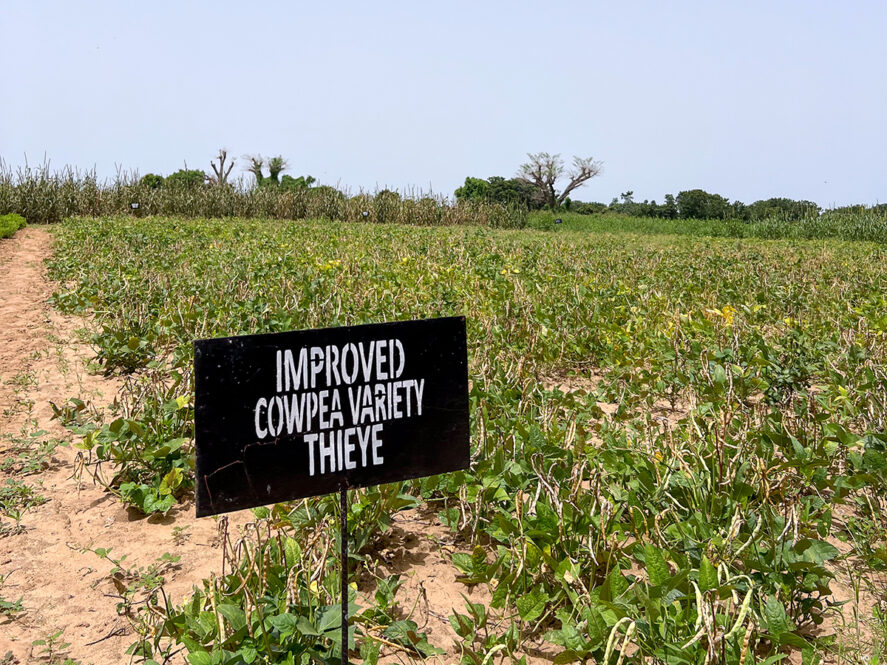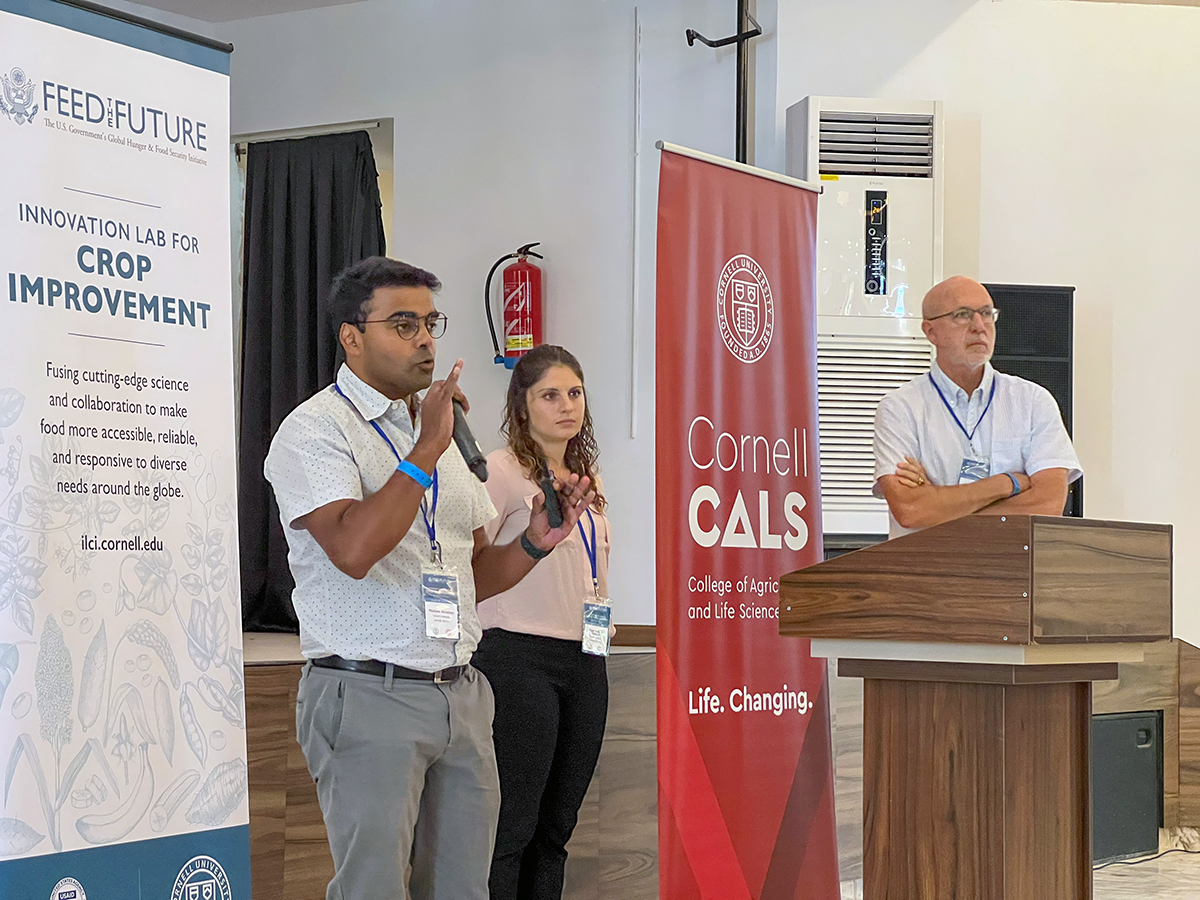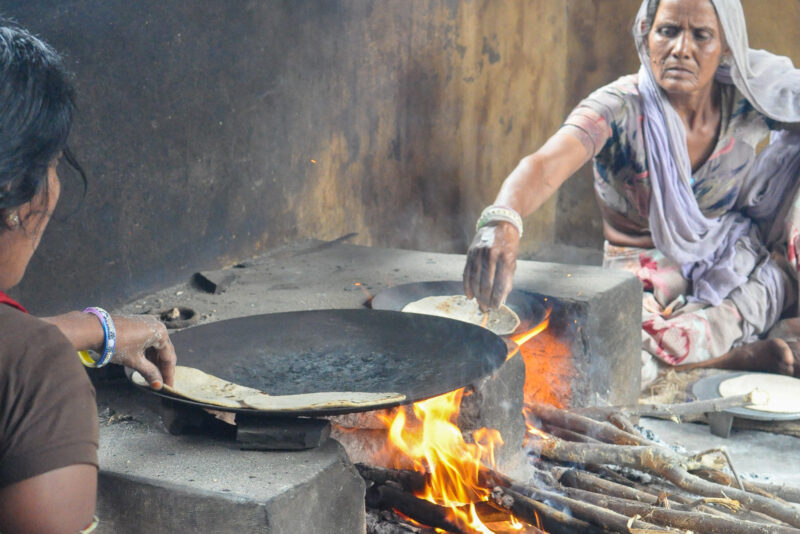Caretakers of Orphan Crops: Nurturing Resilience and Food Security

In agricultural research and development, “orphan crops” are invaluable food crops that have historically been overshadowed by larger staple grains like rice, wheat, and maize. Coarse grains, roots, tubers, and pulses such as millets, cassava, common beans, and others play a critical role in providing essential nutrients and are cultivated by many smallholder farmers in developing countries.
Despite their importance, these crops have not received adequate attention from agricultural research and development. As they are largely consumed locally, much of the crop development activities remains in the ambit of public sector breeding programs. As the leaders of the institutional capacity evaluation team for the Feed the Future Innovation Lab for Crop Improvement, our exploration across eastern and southern Africa delves into the determined efforts of scientists committed to enhancing the resilience and productivity of these overlooked crops.
The significance of orphan crops
Orphan crops are vital in safeguarding food security, significantly contributing to sustaining communities across eastern and southern Africa. These crops boast a rich nutritional profile, abundant with diverse micronutrients, carbohydrates, and proteins crucial for maintaining nutritious diets. Moreover, orphan crops exhibit remarkable adaptability to the diverse agroecological landscapes of the region. For instance, cowpea contributes to soil health and thrives in sandy soil, while finger millet and sorghum demonstrate high drought tolerance and can be cultivated across varying altitudes. However, due to scant attention and investments in plant breeding, challenges such as suboptimal yields and vulnerability to pests and diseases persist, limiting the incentives for smallholder farmers to adopt these crops.
Understanding institutional capacity building
ILCI partners with national agricultural research institutes (NARIs) in Africa, Latin America, and the Caribbean to co-develop tools, technologies, and methods to assist with the improvement of orphan crops and capacity building. ILCI promotes sustainable and inclusive agricultural development and resilience to climate change by empowering local researchers and institutions. TCI’s role within ILCI is to understand, assess, and track how the institutional capacities of partner research institutions are built.

TCI staff present their work during an ILCI conference at The Regional Center of Excellence on Dry Cereals and Associated Crops of the Senegalese Institute of Agricultural Research. (Photo by ILCI)
Our team has conducted surveys and field visits to measure changes in institutional capacity and understand the capacity-building process and its challenges. Our surveys helped capture a baseline and midline of institutional capacity, determining the enabling conditions for implementing various modern technologies and methodologies. The surveys provide valuable insights into progress, such as changes in end-user engagement to understand stakeholder priorities driving improved crop varieties adoption.
The survey results indicate that since the start of the project, programs have consulted more diverse stakeholder groups to identify needs, adopted genomic services, increased the use of digital data collection, and utilized breeding management software for more efficient, accurate, and transparent breeding processes. These progress markers enable us to better understand the ILCI project’s influence on capacity.
Insights from field research: understanding capacity gaps
While our past research efforts have focused on quantitatively capturing capacity and tracking changes, we also prioritize understanding the process of capacity building and the narratives behind the numbers by observing researchers’ experiences, revealing capacity barriers, and understanding goals for partner breeding programs.
Our visits to research stations in Kenya, Uganda, Tanzania, Malawi, and Mozambique unveiled a network of commitment and innovation led by scientists committed to unlocking orphan crops’ potential. Institutional capacity extends beyond human and infrastructure resources. While these are vital components, a holistic vision includes management structures, collaborative activities, breeding strategies, and priority setting. Site visits enabled us to understand challenges and opportunities in achieving program goals and capacity building.
ILCI has successfully fostered collaborations between regional countries, particularly for sharing genetic resources and exposing scientists to new methods and approaches.
ILCI has been influential in boosting programs to conduct more breeding crosses, shifting from evaluating improved varieties developed by other institutions to developing their own. Site visits and discussions with scientific staff revealed insights that were not effectively captured by the institutional capacity survey. For instance, while the survey indicated increased stakeholder consultations and engagement activities, we learned that this was achieved by conducting gender-sensitive value chain analysis and trait surveys to understand stakeholders’ needs better. Additionally, firsthand accounts highlighted how ILCI training in various technical areas, like implementing digital tools for collecting field-level trait data and conducting robust analysis, enabled the uptake of technologies to conduct more efficient breeding and crop evaluation work.
Our interactions also unveiled the challenges research institutions face, including funding constraints and infrastructure gaps that limit their ability to carry out basic research. Despite these challenges, collaborative efforts facilitated by ILCI have fostered the adoption of modern tools and methodologies. However, it became evident that not all technologies and methods are universally applicable or aligned with each program’s specific goals. Each program possesses unique needs and capacity strengths and weaknesses, necessitating targeted interventions to address specific gaps. For example, some institutions lack access to essential resources like reliable internet connectivity or a stable team of scientific staff. By identifying and addressing these gaps, research institutions can enhance their capacity to adopt ILCI tools and methods, conduct impactful research, and contribute to agricultural development.
Leveraging collaborative efforts for capacity enhancement
ILCI has successfully fostered collaborations between regional countries, particularly for sharing genetic resources and exposing scientists to new methods and approaches. There is a desire to expand this collaboration, providing opportunities for travel to various orphan crop breeding programs, observing activities in other countries, and building networks linking scientists working on specific crops or disciplines.
Collaborative research initiatives enable knowledge sharing, resource pooling, and collective problem-solving. By leveraging the expertise and resources of multiple stakeholders, research institutions can achieve greater impact and accelerate progress in orphan crop improvement. Moreover, partnerships with international organizations and academic institutions provide access to additional funding, expertise, and research opportunities. Collaboration is integral as no breeding program operates in isolation, and fostering these partnerships will be crucial for building capacity and maximizing limited budgets and personnel effectively.
Formidable challenges loom, impeding the trajectory towards enhanced productivity and widespread adoption of orphan crops. Scarce funding, overreliance on external support, and inadequate infrastructure emerge as difficult barriers, hindering the progress of research and development endeavors. Initiatives like ILCI aim to confront these obstacles by prioritizing breeding initiatives aligned with local communities’ needs, fostering inclusive stakeholder engagement, and nurturing regional collaborations. Nevertheless, sustaining this momentum demands continued investment in capacity-building initiatives and robust partnerships.
Our voyage through eastern and southern Africa, meeting with scientists, has offered insights into the realm of orphan crop research, illuminating the profound significance of these oft-overlooked crops in sustaining rural communities and fortifying food security. By nurturing collaboration, innovation, and knowledge exchange, ILCI has empowered these scientists to serve as determined caretakers of these invaluable crops with high relevance for climate resilience and nutrition, the defining challenges of food security in the 21st century.
Sage Grasso-Monroe is a research support specialist at TCI.
Featured image: An improved variety of cowpea grows in a field at The Regional Center of Excellence on Dry Cereals and Associated Crops of the Senegalese Institute of Agricultural Research. (Photo by ILCI)





